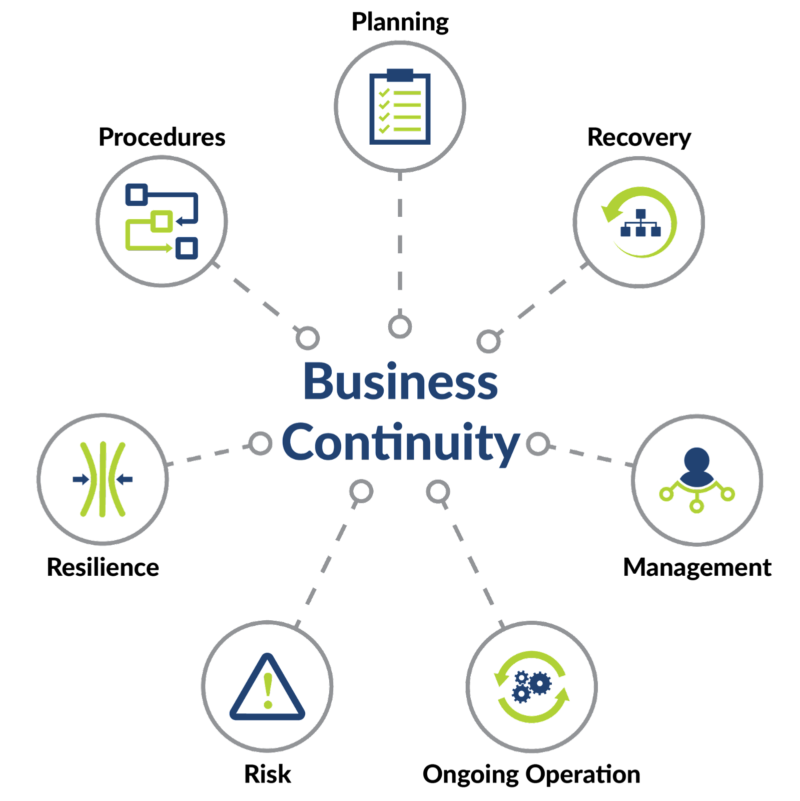The Lifeline of Business Operations: Data Backup and Continuity Strategies
In today’s digital age, data reigns supreme. Businesses of all sizes rely on data for day-to-day operations, decision-making, and growth. However, with great data comes great responsibility. That’s where data backup and continuity come into play. These two fundamental concepts are the bedrock of modern business operations, ensuring the resilience and survival of companies in the face of data disasters. In this article, we will define and describe data backup and continuity, explain their vital importance to businesses, and explore some of the most successful strategies to implement them.
What is Data Backup?
Data backup is the process of creating a duplicate copy of your critical data and storing it separately from the original source. This ensures that if your primary data is lost, corrupted, or compromised due to various reasons such as hardware failure, cyberattacks, or natural disasters, you can recover it from the backup. Essentially, data backup serves as a safety net for your business’s digital assets.
Understanding Data Continuity
Data continuity, on the other hand, goes beyond mere data backup. It encompasses a comprehensive strategy that ensures uninterrupted access to essential data and systems, even during disruptive events. It’s about maintaining business operations despite challenges, making it a key component of business resilience. Data continuity plans involve not only data backup but also processes, people, and technologies that keep the business running smoothly in adverse circumstances.
The Importance of Data Backup and Continuity to Businesses
- Mitigating Downtime: Downtime can be a business’s worst nightmare, leading to loss of productivity and revenue. Data backup and continuity strategies minimize downtime by enabling quick data recovery and system restoration.
- Data Protection: In an era of increasing cyber threats, protecting sensitive customer information and intellectual property is paramount. Data backup and continuity safeguards your data from ransomware attacks and data breaches.
- Legal Compliance: Many industries have strict data retention and protection regulations. Implementing robust backup and continuity measures ensures compliance with these rules, reducing the risk of costly fines.
- Customer Trust: Customers expect their data to be handled responsibly. Demonstrating a commitment to data security through backup and continuity practices can enhance your reputation and build trust.
Successful Strategies for Data Backup and Continuity
- Regular Backups: Establish a routine for data backups, whether it’s daily, weekly, or in real-time, depending on your business’s needs. Automated backup solutions can streamline this process.
- Offsite Storage: Store backups offsite, preferably in geographically distant locations. Cloud-based storage solutions are an excellent choice for secure and accessible data storage.
- Encryption: Encrypt your backup data to protect it from unauthorized access. This is especially crucial for sensitive information.
- Testing and Validation: Regularly test your backup and continuity plans to ensure they work as intended. These tests help identify and address potential issues before a disaster occurs.
- Employee Training: Ensure that your employees are aware of data backup and continuity procedures and their roles in implementing them. Well-informed employees are crucial to successful recovery efforts.
- Redundancy: Implement redundant systems and infrastructure to minimize single points of failure. This redundancy can be a lifesaver during critical situations.
- Incident Response Plan: Develop a comprehensive incident response plan that outlines steps to be taken during data disasters. This plan should integrate with your backup and continuity strategies.
In conclusion, data backup and continuity are the twin pillars that support a business’s ability to withstand unforeseen challenges. They are not merely technical processes but essential components of a holistic business resilience strategy. By implementing the right strategies and technologies, businesses can safeguard their data, protect their reputation, and ensure their long-term success, even in the face of adversity. Don’t wait until disaster strikes; invest in data backup and continuity today to secure your business’s future.



